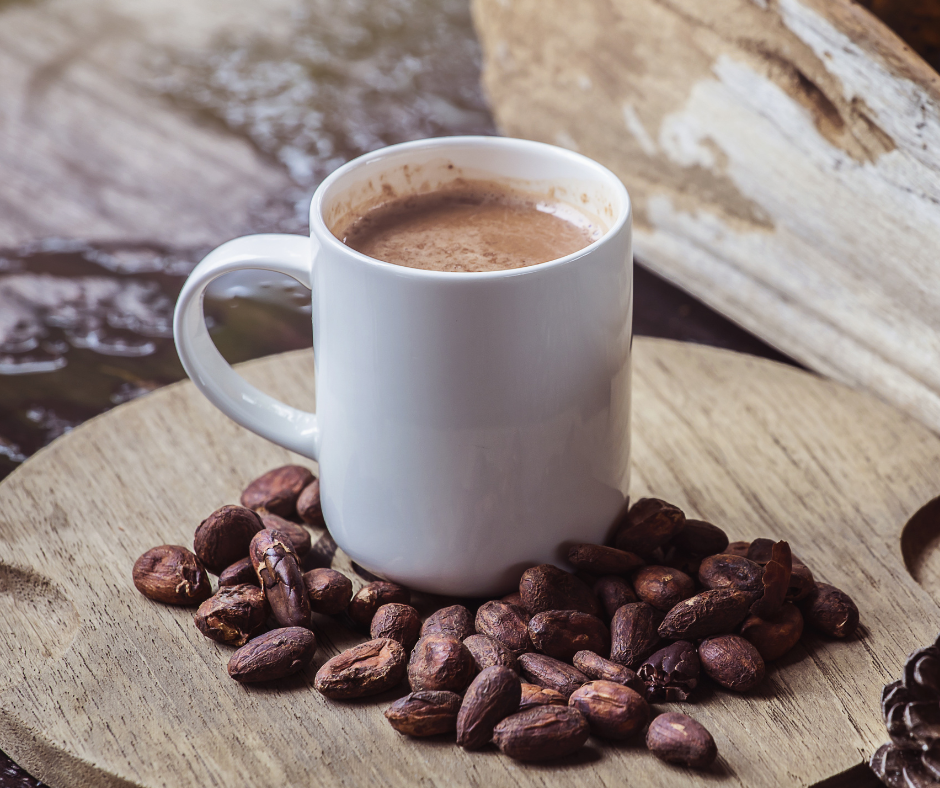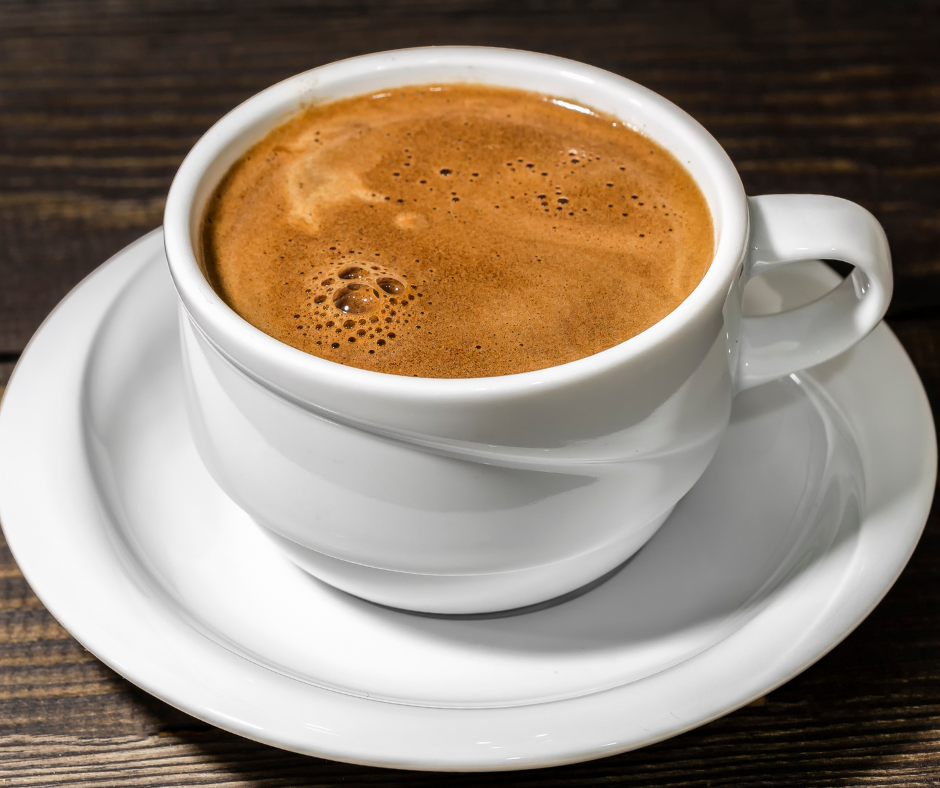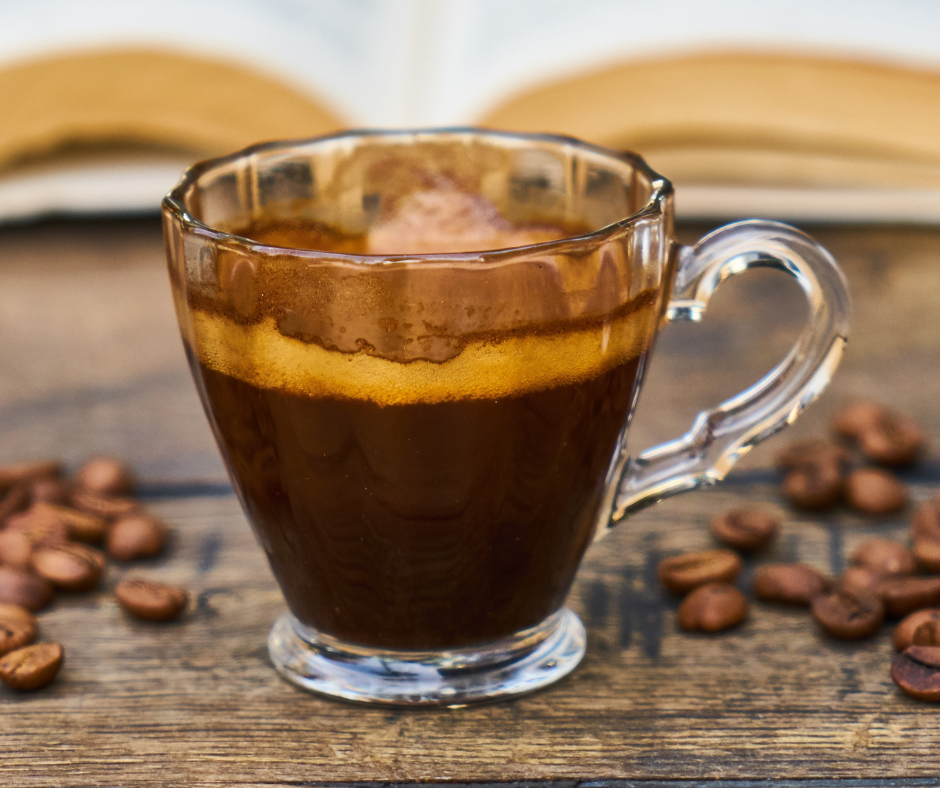Introduction
Coffee is a popular beverage consumed by millions of people around the world. Apart from its rich flavor and aroma, one commonly discussed aspect of coffee is its caloric content. It has been widely accepted that coffee is low in calories, making it a favored choice for those watching their waistlines. This article will explore ‘Does Coffee Have Calories?‘ and its potential impact on weight loss goals.
The Curiosity Behind The Caloric Content In Coffee
When it comes to understanding the caloric content in coffee, it is important to note that this can vary slightly depending on the source. However, all sources agree that the number of calories in a cup of coffee is negligible. Typically, figures range from 2 to 12 calories per cup. This makes coffee a very low-calorie beverage, especially without additional ingredients.
Understanding The Impact Of Caloric Intake On Weight Loss Goals
Monitoring caloric intake is often a key factor for individuals seeking a healthy weight. One can significantly reduce caloric intake by replacing a high-calorie, sugar-sweetened beverage with a cup of coffee. This simple switch can potentially lead to weight loss over time.
Research suggests that replacing just one cup (240 ml) of a high-calorie sugary drink with equal water can result in more than 4 pounds (1.9 kg) of weight loss over six months. This highlights the impact of caloric choices on weight management.
In conclusion, coffee is indeed low in calories, making it a suitable choice for those looking to maintain or achieve a healthy weight. Replacing high-calorie beverages with coffee can be a simple yet effective way to reduce caloric intake and potentially aid in weight loss. However, it is important to note that individual results may vary, and incorporating coffee into a well-balanced diet and active lifestyle is key for overall health and weight management.
Does Coffee Have Calories?
Coffee is a popular beverage enjoyed by millions worldwide. In addition to its flavor and aroma, many people are interested in its calorie content. So, Does Coffee Have Calories? Coffee is often considered low in calories, making it a preferred choice for those watching their calorie intake. This article will explore the caloric content of coffee and its potential impact on weight management goals.
The Types Of Coffee And Their Caloric Differences
Regarding coffee, the caloric content can vary depending on the type and specific preparation method. For instance, a cup of black coffee, brewed through different methods, typically contains only 2 to 12 calories. This makes black coffee an excellent option for those seeking a low-calorie beverage.
If you prefer flavored or specialty coffee drinks, it’s important to note that the caloric content can increase significantly. For example, a coffee drink with added cream, sugar, syrup, or whipped cream can contain anywhere from 100 to 500 calories, depending on the size and ingredients used. These added calories can substantially impact overall calorie intake, leading to potential weight gain if consumed frequently.
The Science Behind The Caloric Content In Coffee
The main reason coffee is low in calories is that it primarily consists of water. The brewing process extracts the flavors and aroma from the coffee beans without significantly adding calories. The caloric content can be affected by factors such as the bean quality, roast level, and brewing method, but coffee generally remains a low-calorie option.
It’s important to note that while coffee is low in calories, many popular add-ins can significantly increase its caloric content. Creamers, sweeteners, and flavored syrups can be high in calories, making the overall caloric impact of your coffee choice much higher.
In conclusion, understanding the caloric content of coffee is essential for those maintaining a healthy weight. Black coffee is an excellent low-calorie choice, while flavored or specialty coffee drinks can be high in calories. By being mindful of the additives and quantities used, individuals can still enjoy a better cup of coffee while keeping an eye on their calorie count.
Brewed Coffee – The Bare Minimum
Exploring The Low Caloric Content Of Plain-Brewed Coffee
Coffee is a widely consumed beverage known for its unique flavor profile. Regarding calories, plain brewed coffee is an excellent choice for those watching their calorie intake. A cup of black coffee, brewed through different methods, typically contains only 2 to 12 calories. These minimal calories make it a favorable option for weight management purposes.
How To Enjoy Brewed Coffee With Minimal Caloric Impact
To keep the caloric impact of your plain brewed coffee to a minimum, it’s important to avoid adding extras that can significantly increase calorie content. Here are some tips to enjoy a low-calorie cup of brewed coffee:
- Skip the cream: Opt for black coffee instead of adding cream or milk. Creamers can add significant calories and fat content to your beverage.
- Go easy on the sweeteners: If you prefer a sweeter taste, choose natural sweeteners like stevia or monk fruit extracts instead of regular sugar. These alternatives have fewer calories and can still provide the sweetness you desire.
- Limit flavored syrups: Flavored syrups may enhance the taste of your coffee, but they can also contribute to higher calorie intake. Use them sparingly, or consider using sugar-free versions to reduce calorie content.
- Control portion sizes: Be mindful of the size of your coffee cup. Larger cups can lead to consuming more coffee and potentially extra calories. Stick to smaller cup sizes to keep your overall calorie intake in check.
In conclusion, plain brewed coffee is a low-calorie option for individuals concerned about their calorie intake. By avoiding extras such as cream, excessive sweeteners, and flavored syrups, you can enjoy the taste of coffee with minimal caloric impact. Remember that making conscious choices about your coffee add-ins can support your weight management goals.
Dressing Up Your Coffee
The Hidden Calories In Popular Coffee Additions
While plain brewed coffee is low in calories, the same cannot be said for coffee that is dressed up with various additives. Common additions such as milk, sugar, creamers, and flavored syrups can significantly increase the calorie content of your cup of joe. Here are some examples of the hidden calories in popular coffee additions:
| Addition | Calories per 1 oz | Sugar (grams) per 1 oz | Fat (grams) per 1 oz |
|---|---|---|---|
| Whole Milk (2% fat) | 18 | 1.4 | 0.9 |
| Reduced-fat milk (1% fat) | 13 | 1.8 | 0.4 |
| Soy Milk | 32 | 3 | 1.7 |
| Almond Milk (unsweetened) | 7 | 0 | 0.6 |
| Sugar (granulated) | 49 | 12.5 | 0 |
| Coffee Creamer (non-dairy) | 20-25 | 2-3 | 1.5-2 |
| Flavored Syrup (regular) | 86-128 | 20-30 | 0 |
Creative Alternatives To Traditional Coffee Add-ons
If you enjoy a flavored or creamy coffee but want to cut back on the calories, here are some creative alternatives you can try:
- Try unsweetened almond or coconut milk as a substitute for regular milk or creamer. These options have fewer calories and can still add a creamy texture to your coffee.
- Experiment with natural flavorings like cinnamon, cocoa powder, or vanilla extract to add a hint of flavor without the extra calories.
- Explore sugar-free or low-calorie flavored syrups that are available in the market. These can provide the sweetness you desire without the high-calorie content.
- If you’re a fan of frothy coffee, try using a milk frother to create foam using low-fat or non-dairy milk options.
In conclusion, while plain brewed coffee is a low-calorie choice, it’s important to be mindful of the calorie content when adding extras. You can still enjoy a delicious coffee without derailing your calorie goals by opting for lower-calorie alternatives and controlling portion sizes.
Specialty Coffee Drinks And Their Calories
Shedding Light On The Caloric Content Of Popular Coffee Beverages
While plain black coffee may be a low-calorie choice, many specialty coffee drinks can quickly increase the calorie count. These indulgent beverages are often made with coffee, milk, syrups, and toppings, which can significantly increase their caloric content. Here are some examples of the caloric content of popular specialty coffee drinks:
| Beverage | Calories (12 oz) | Sugar (grams) | Fat (grams) |
|---|---|---|---|
| Caramel Frappuccino | 370 | 52 | 15 |
| Mocha Latte | 290 | 31 | 11 |
| Pumpkin Spice Latte | 380 | 50 | 14 |
| Vanilla Latte | 250 | 27 | 10 |
| Flat White | 120 | 9 | 7 |
Making Conscious Choices To Manage Caloric Intake
If you enjoy specialty coffee drinks but are concerned about their caloric impact, there are strategies you can employ to make more conscious choices:
- Opt for smaller sizes, such as tall or small, to reduce the overall calorie count.
- Choose non-fat or low-fat milk as a lighter alternative to whole milk or cream.
- Request sugar-free or reduced-sugar syrups to cut down on added sugars.
- Skip the whipped cream and other high-calorie toppings.
- Consider ordering an Americano made with espresso and hot water for a lower-calorie coffee option.
By being aware of the caloric content of your favorite coffee beverages and making informed choices, you can still enjoy the occasional treat without sabotaging your caloric goals.
Impact Of Coffee Preparation Methods
The Effect Of Different Brewing Methods On Caloric Content
Different coffee brewing methods generally do not significantly impact the calorie count in coffee. The main component dictating calories is the coffee bean, which contributes minimal calories. However, brewing techniques that extract more oils, like the French press, could slightly increase calories due to the oils present in the coffee beans.
Comparing The Caloric Differences In Various Coffee Preparations
While plain black coffee may be a low-calorie choice, many specialty coffee drinks can quickly increase the calorie count. These indulgent beverages are often made with coffee, milk, syrups, and toppings, significantly increasing their caloric content. Here are some examples of the caloric content of popular specialty coffee drinks:
| Beverage | Calories (12 oz) | Sugar (grams) | Fat (grams) |
|---|---|---|---|
| Caramel Frappuccino | 370 | 52 | 15 |
| Mocha Latte | 290 | 31 | 11 |
| Pumpkin Spice Latte | 380 | 50 | 14 |
| Vanilla Latte | 250 | 27 | 10 |
| Flat White | 120 | 9 | 7 |
If you enjoy specialty coffee drinks but are concerned about their caloric impact, there are strategies you can employ to make more conscious choices:
- Opt for smaller sizes, such as tall or small, to reduce the overall calorie count.
- Choose non-fat or low-fat milk as a lighter alternative to whole milk or cream.
- Request sugar-free or reduced-sugar syrups to cut down on added sugars.
- Skip the whipped cream and other high-calorie toppings.
- For a lower-calorie coffee option, consider ordering an Americano made with espresso and hot water.
By being aware of the caloric content of your favorite coffee beverages and making informed choices, you can still enjoy the occasional treat without sabotaging your caloric goals.
The Role Of Coffee In Weight Loss
Understanding The Connection Between Coffee Consumption And Weight Management
The impact of coffee on weight loss is often a topic of interest for those seeking to achieve a healthier lifestyle. Coffee, particularly black coffee without any added ingredients, is known to be very low in calories, making it a suitable choice for those looking to maintain or achieve a healthy weight. When aiming to lose weight, creating a calorie deficit is essential, and opting for lower-calorie beverages like black coffee can contribute to this goal.
However, it’s important to note that what you add to your coffee can significantly impact its weight loss benefits. Loading your coffee with sugar and cream can counteract its potential benefits and lead to excess calorie consumption.
The caffeine found in coffee may also play a role in weight management. It can boost your metabolism, increasing calorie burn throughout the day. Additionally, caffeine has been linked to improved physical performance and appetite control, which can further support weight loss efforts.
Incorporating Coffee Into A Balanced Diet For Optimal Results
While black coffee is a low-calorie option, it’s important to consider the impact of different coffee preparation methods and specialty coffee drinks on your overall calorie intake. While brewing methods do not significantly affect the caloric content of coffee, some methods, like the French press, may slightly increase calories due to the extraction of oils from the beans.
On the other hand, specialty coffee drinks can quickly become high in calories due to added ingredients such as milk, syrups, and toppings. For example, popular drinks like Caramel Frappuccino and Pumpkin Spice Latte can contain hundreds of calories and significant amounts of sugar and fat. If you enjoy these indulgent beverages but are concerned about their caloric impact, consider strategies like opting for smaller sizes, choosing non-fat or low-fat milk, requesting sugar-free or reduced-sugar syrups, and skipping high-calorie toppings.
By being aware of the caloric content of your coffee beverages and making informed choices, you can still enjoy your favorite treats without hindering your weight loss goals. Coffee can be a part of a balanced diet and contribute to your overall weight management efforts when consumed in moderation and paired with a healthy lifestyle.
Debunking Common Coffee Calorie Myths
Addressing Misconceptions About Coffee And Its Caloric Content
There are several myths surrounding the caloric content of coffee and its impact on weight loss. Let’s address some of these misconceptions:
- Myth: Coffee is calorie-free and has no impact on weight loss.Reality: A plain cup of brewed coffee does have minimal calories, less than 5 calories, and no fat. However, adding extra sugar and cream can significantly increase the calorie count.
- Myth: Drinking coffee leads to long-term weight loss.Reality: While coffee may boost metabolism and increase calorie burn, it is not a miracle solution for weight loss. A balanced diet and regular exercise are still crucial for sustainable weight loss.
Dispelling Myths Surrounding The Impact Of Coffee On Weight Loss
- Myth: Drinking coffee will shorten our lifespan.Reality: Research suggests moderate coffee consumption is generally safe and may have some health benefits. However, excessive caffeine intake can have adverse effects, so it’s important to consume coffee in moderation.
- Myth: Darker roast coffees provide more caffeine.Reality: The caffeine content in coffee depends on the type of beans used, not the roast. Darker roasts may have a slightly lower caffeine content due to the longer roasting process.
In summary, coffee can be a part of a healthy diet and contribute to weight management when consumed in moderation and without excessive additives. While black coffee is low in calories, specialty coffee drinks with added ingredients can be high in calories. Being mindful of your coffee choices and choosing healthier alternatives can help you enjoy your favorite beverage without sabotaging your weight loss goals.
Conclusion
The Verdict
Now you should know the answer to ‘Does Coffee Have Calories?’. Contrary to some misconceptions, coffee does have calories, although the amount is minimal in a plain cup of brewed coffee. The caloric content increases when extras like sugar and cream are added.
Final Thoughts On Enjoying Coffee While Managing Caloric Intake
While coffee can be enjoyed as part of a weight management plan, it is essential to be mindful of the additional ingredients that may add calories. Opting for healthier alternatives or reducing the amount of additives can help maintain a balanced caloric intake while still enjoying your coffee.
FAQ: Does Coffee Have Calories: Unveiling the Caloric Content in Your Cup of Coffee
Q: Does coffee have calories?
A: Yes, coffee does contain calories. However, the amount of calories in coffee depends on how it is prepared and what additives are included.
Q: How many calories are in a cup of black coffee?
A: A cup of black coffee, brewed without additional ingredients, typically contains only 2 calories. This makes black coffee a low-calorie beverage.
Q: Does adding sugar to coffee increase its caloric content?
A: Adding sugar to your coffee will increase its caloric content. Each teaspoon of sugar adds approximately 16 calories to your cup of coffee. Therefore, if you enjoy sweetened coffee, be mindful of the number of teaspoons you add.
Q: What about milk or cream? Do they add calories to coffee?
A: Yes, milk and cream contribute to coffee’s caloric content. However, the amount of calories depends on the type of dairy product used. For example, one tablespoon of whole milk adds approximately 9 calories, while the same amount of half-and-half adds about 20 calories. Be aware that using larger quantities can significantly increase the calorie count.
Q: What is the calorie content of flavored syrups in coffee?
A: Flavored syrups, such as vanilla or caramel, can add several calories to your coffee. Typically, one pump of syrup contains around 20 calories. The calorie count can quickly increase if you indulge in multiple pumps.
Q: Are there any low-calorie alternatives for sweetness or flavor in coffee?
A: Yes, various low-calorie sweeteners and flavorings can be used instead of sugar or syrups. These alternatives provide sweetness or flavor without adding significant calories to your coffee. Look for options like stevia, artificial sweeteners, or sugar-free syrups.
Q: How can I make my coffee lower in calories?
A: To reduce the calorie content of your coffee, consider opting for black coffee or using low-calorie alternatives like skim milk or unsweetened almond milk instead of regular milk or cream. You can also experiment with using less sugar or opting for sugar-free sweeteners.
Q: Should I be concerned about the calories in my coffee?
A: The calorie content of coffee alone is relatively low. However, it is essential to consider the total calorie intake from all the items you add to your coffee. Consuming multiple cups throughout the day with added sugar, cream, or flavored syrups can increase the calorie count. Monitoring portion sizes and making mindful choices can help maintain a balanced diet.




